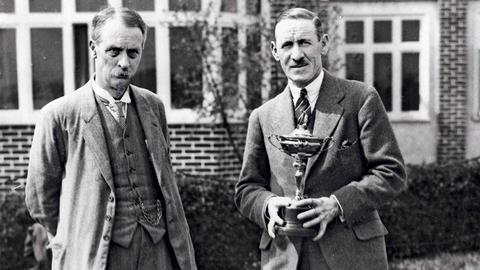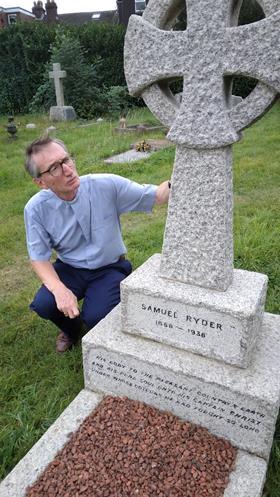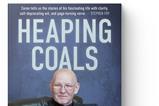As the world’s top golfers gather in Rome for the start of the Ryder Cup, few may know that the British golfer, Samuel Ryder, who founded the tournament had a strong Christian faith. Rev Peter Crumpler explains

Millions of golf fans will watch the world-famous competition now played between teams from the United States and Europe, unaware that the idea began with a Hertfordshire seed merchant and committed churchman who wanted to improve his fitness.
Samuel Ryder, who gave his name to the event, is buried in the cemetery just across from the church in St Albans where I minister. He died in 1936, aged 77. His grave is tucked away among many others but can often be spotted by the golf balls left there by players paying their respects - or maybe offering up a prayer to improve their handicap…
Ryder is remembered as a man “always aware of his philanthropic and civic duties”
Ryder – a successful businessman who invented the idea of the ‘penny packet’ to sell seeds in small quantities – began playing golf in his 50s, following advice from a preacher friend to seek fresh air and exercise. He took daily lessons – except on Sundays – and quickly became a competent player. He joined the local golf club and was elected team captain.
A fresh challenge
Keen to promote golf and the status of its professional players, Ryder proposed a challenge match between the United States and Great Britain and Ireland, and commissioned the competition’s trophy.
More on sport:
The first match was played in Worcester, Massachusetts in 1927 – won by the US team – and the second in Leeds, England, won by the British golfers. Samuel Ryder lived to see two competitions played on home soil before dying in January 1936.
A lasting legacy
Ryder was brought up as a Wesleyan Methodist and attended the independent chapel in St Albans. He was an elder there, with special responsibility for religious education. At one point, he was supervising 18 teachers. When the congregation outgrew the chapel in the late 19th century, Ryder financially supported the building of a new, larger church in the city.
Having witnessed great poverty in his native Lancashire, he was always keen to help those less fortunate than himself, and was described as a man “always aware of his philanthropic and civic duties”. He was involved in local politics and was elected Mayor of St Albans in 1905.
Ryder’s funeral was a major civic occasion in St Albans – the first to be held in an independent church, rather than in the city’s Anglican Cathedral. His daughter, Marjorie, sent her father’s favourite five iron to be placed in his coffin.
Ryder began playing golf in his 50s, following advice from a preacher friend

Ryder’s life is commemorated in St Albans with a school and a hotel named after him. Although local tour guides have researched his history and organise talks and walks celebrating his life, it is Ryder’s connection with the high-profile golf tournament that remains his lasting legacy.
Today, the competition’s organisers describe the tournament in graphic terms: “Drama, tension, incredible golf, camaraderie and sportsmanship are served in equal measure, captivating an audience of millions around the world.”
They add: “It’s an event that transcends sport, yet remains true to the spirit of its founder, Samuel Ryder.”
As this year’s Ryder Cup gets underway, let’s pray for the golfers, their families, the staff, commentators and everyone watching that this legacy may also include Ryder’s Christian faith.





































No comments yet